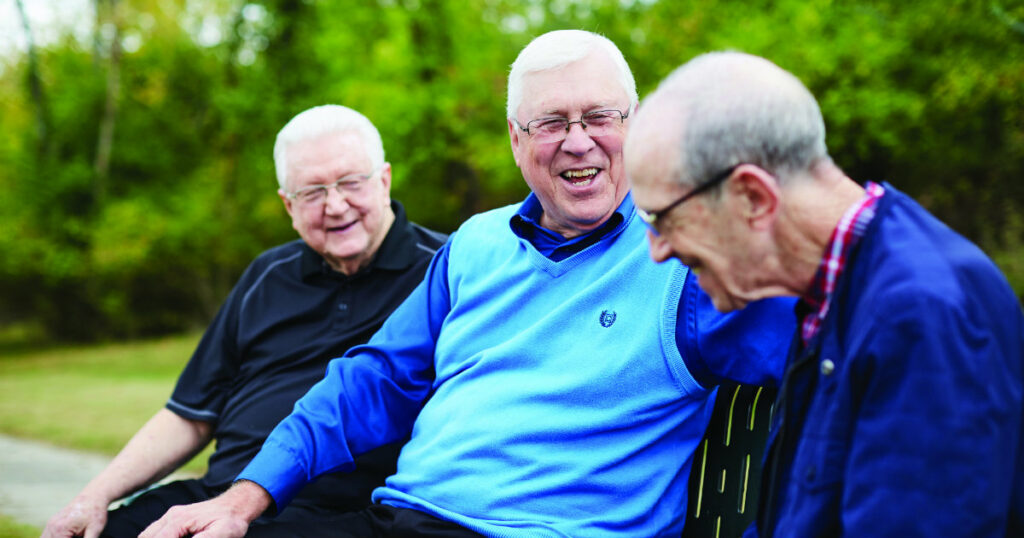by Matthew C. Harrison
In trying to find parallels to the COVID-19 epidemic, mention is often made of the Spanish flu outbreak in 1918. But there have been other epidemics in the U.S. that were far more dangerous than the flu in 1918 or today’s COVID-19 outbreak, serious as it is. In St. Louis, cholera struck in 1849. Of St. Louis’ 63,471 residents, 8,444 died. At its worst, 200 people a day were dying in the city.
Dr. C.F.W. Walther’s family was hit by the deaths of his mother-in-law, sister-in-law and nephew, all in June. He performed funerals for 45 members of his congregation struck down that year of the disease. Another local LCMS pastor noted after a visit to St. Louis in 1849 that he saw “hearses from morning till night, without ceasing.” On top of all this, there had been a terrible “Ascension Day” fire in May that destroyed 600 buildings and 27 steam ships moored on the banks of the Mississippi. Many of the members of Trinity Lutheran Church were suffering also from that devastation of homes and businesses. Dr. Walther himself was named the health official of his district, responsible “to use such remedies as necessity demands by supplying the poor with medical devices, having medicines made up for them, and using disinfectants.”
What did Dr. Walther preach during these hard times?
Rebellions by entire nations against their governments [1848 saw numerous revolutions against European governments]; bloody, destructive wars on land and sea; a contagious epidemic striding across the face of the earth; these are the awesome preachers to whom God has now issued the command: “Go into all the world and preach repentance to all creatures!” (C.F.W. Walther, The Word of His Grace, 167)
It was a clever turn to apply Christ’s mandate to the apostles and His church to preach repentance to the devastating events happening to the world of his hearers in 1849! But the times and events, times of fear, death and destruction often amount to the preaching of law. They terrify; strike down; and reveal sin, faithlessness and fear.
What would a preacher preach? Indeed, to the suffering, the discouraged, the downtrodden, those struck by tragedy, the preacher proclaims the pure sweet Gospel of Christ. “Come to me, all who labor and are heavy laden, and I will give you rest” (Matt. 11:28). “I am the resurrection and the life. Whoever believes in me, though he die, yet shall he live” (John 11:25). “For God so loved the world, that he gave his only Son, that whoever believes in him should not perish but have eternal life” (John 3:16).
Of course, such events strike us in different ways and produce different results and different sins. Some doubt God’s promises. Some become paralyzed by fear. Some take on an epicurean attitude: “Let’s eat and drink for tomorrow we die!” Some become selfish and self-centered. Some become overbearing, disdaining others with a different take. Some “despise preaching and His Word” or the Lord’s Supper.
Ultimately, most people need have very little fear of COVID-19. That said, some are struck hard, suffer for weeks on end, and even die. Some areas of the country are hit hard, others not so much. The uncertainty of the situation has caused division within congregations. One pastor recently said, “I thought I had a ‘purple’ congregation, but I discovered during COVID that I had two congregations: one blue and one red.”
This all makes preaching and pastoral care an even more difficult art. Pastoral care is the art of distinguishing the Law and the Gospel and giving each his due. Luther called properly distinguishing between Law and Gospel the most difficult task of being a pastor.
I suggest two things: First, cut your pastor some slack. He’s not Jesus. He’s trying to do the best he can in a tough situation where people have diverse and strong opinions. Second, despite whatever views you’ve formulated on what your pastor or congregation has done or should do, put your hand to your chest, and feel whether you have flesh and blood, and at least believe what the Scriptures say: “None is righteous, no, not one” (Rom. 3:10). Go to your pastor and say, “Pastor, I’m sorry I’ve been a pain to you and made your life even more challenging. Please forgive me. I want to do better. How can I be helpful?” And he shall say, “I do forgive you. In the stead of Christ, and by His command, I forgive you all your sins in the name of the Father and of the Son and of the Holy Spirit. Amen.”
–Pastor Harrison







I wish there were buttons which could be used to share this article via social media easily.
I searched for a post about it on the Facebook account of *The Lutheran Witness*, and did not find one.
Salvatore, you can share any LW article on Facebook by copying and pasting the link into your post.
I am finding this series interesting. I am a roaming Lutheran